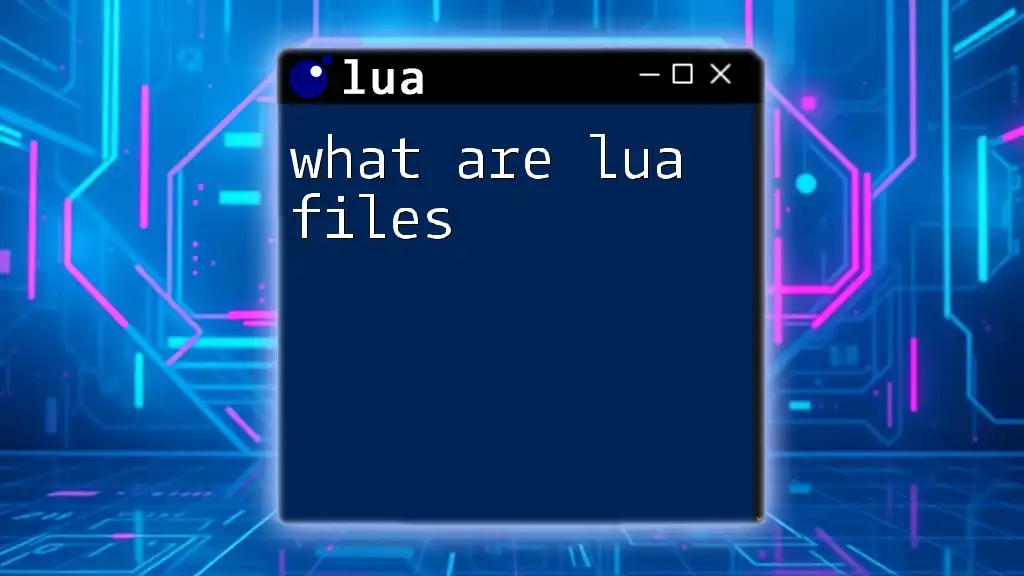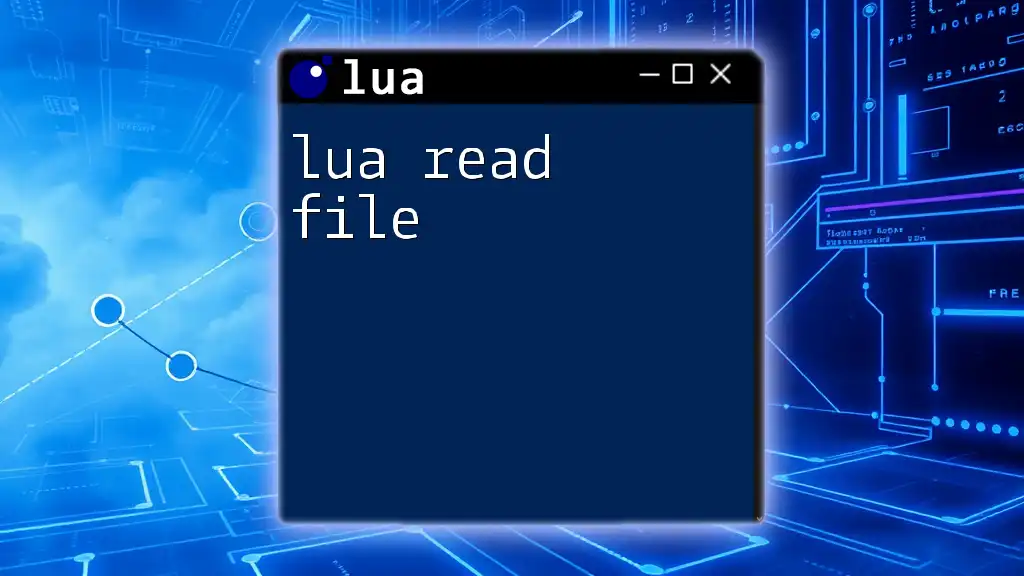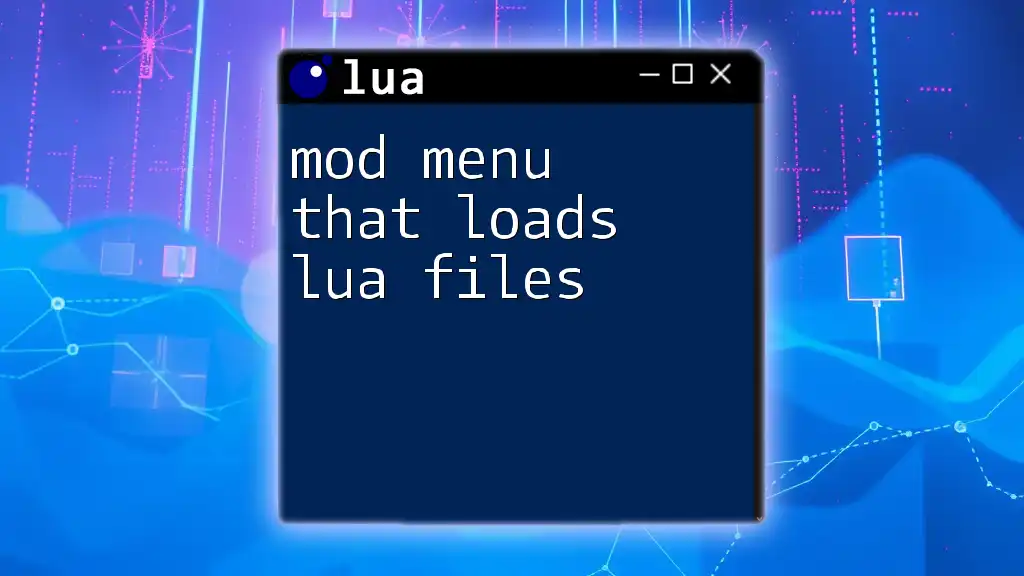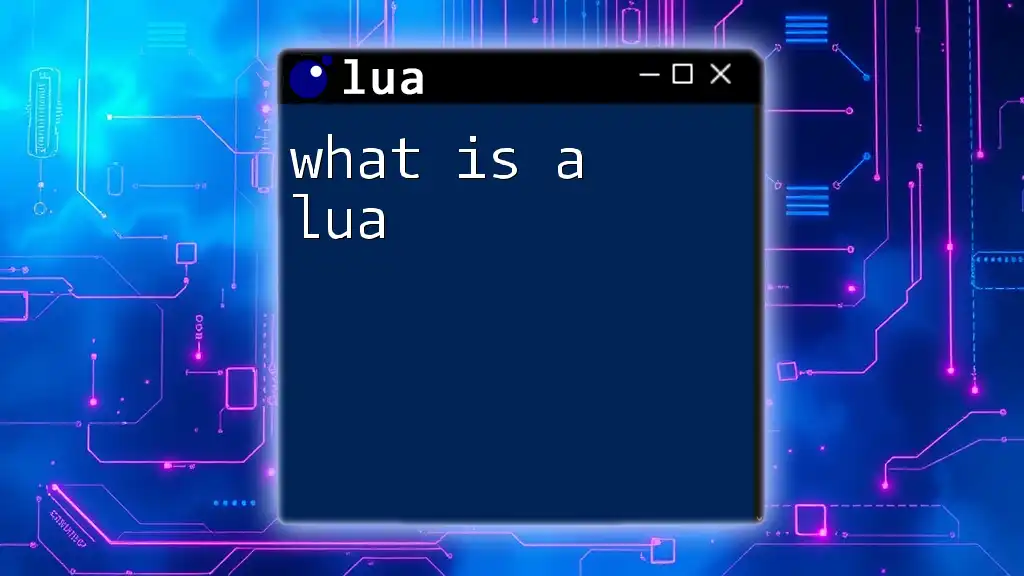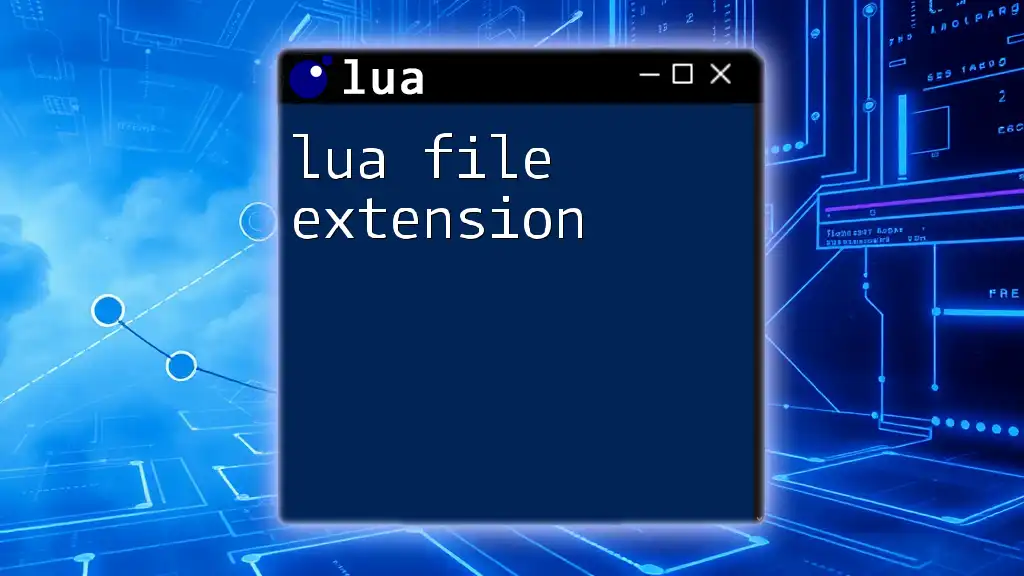Lua files are plain text files that contain Lua code, typically with a `.lua` extension, which can be executed by the Lua interpreter or embedded in applications.
Here’s a simple example of a Lua script:
print("Hello, World!")
Understanding Lua Files
What is a Lua File?
A Lua file is a plain text file that contains code written in the Lua programming language, and it typically has a `.lua` file extension. These files are the foundation for scripting in Lua, allowing developers to write, organize, and execute their code. The syntax of Lua is simple and straightforward, promoting ease of use and readability.
How Lua Files Are Used
Lua files have a wide range of applications, particularly in areas such as:
- Game Development: Lua is widely used in the gaming industry, notably in platforms like Roblox and game engines such as Love2D and Corona. Here, Lua files can handle everything from game logic to user interfaces.
- Application Configuration: Many applications utilize Lua files to allow users to customize settings and behaviors without altering the underlying codebase. These files serve as configuration scripts that the main program can easily read and parse.
- Embedded Systems: Lua is lightweight and efficient, making it a good choice for scripting in embedded systems, where memory and processing power are often limited.
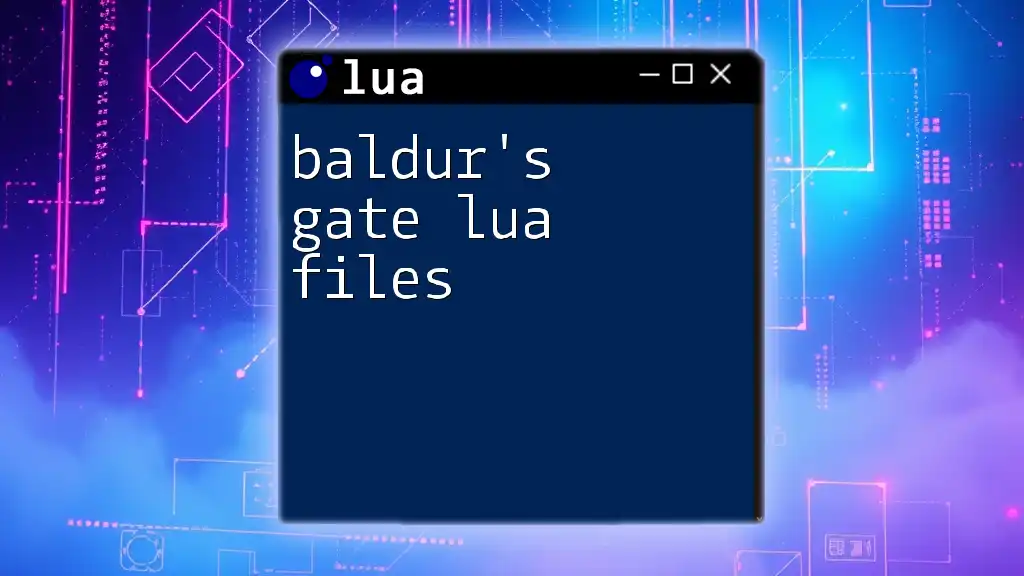
The Structure of Lua Files
Basic Syntax and Components
Lua has a minimalist design, requiring only basic elements to create meaningful scripts. Key components include:
- Comments: To annotate Lua code, use single-line comments (`-- comment`) and multi-line comments (`--[[ comment ]]`).
- Variables: In Lua, variables are declared without a specific type, making it flexible for different data types.
Example: Basic Variable Declaration
local greeting = "Hello, Lua world!"
print(greeting)
In this example, we declare a local variable `greeting`, which holds a string. The subsequent print function outputs the value to the console.
Functions in Lua Files
Functions are fundamental in Lua, allowing for modular code and code reuse. Defining functions follows a clear syntax, which is essential for organizing logic in Lua files. Understanding scope is vital here—local variables declared within a function are not accessible outside.
Example: Defining a Simple Function
function greet(name)
return "Hello, " .. name
end
print(greet("User"))
In this snippet, the function `greet` takes a parameter `name` and concatenates it with a greeting string. The result is printed using the `print` function.
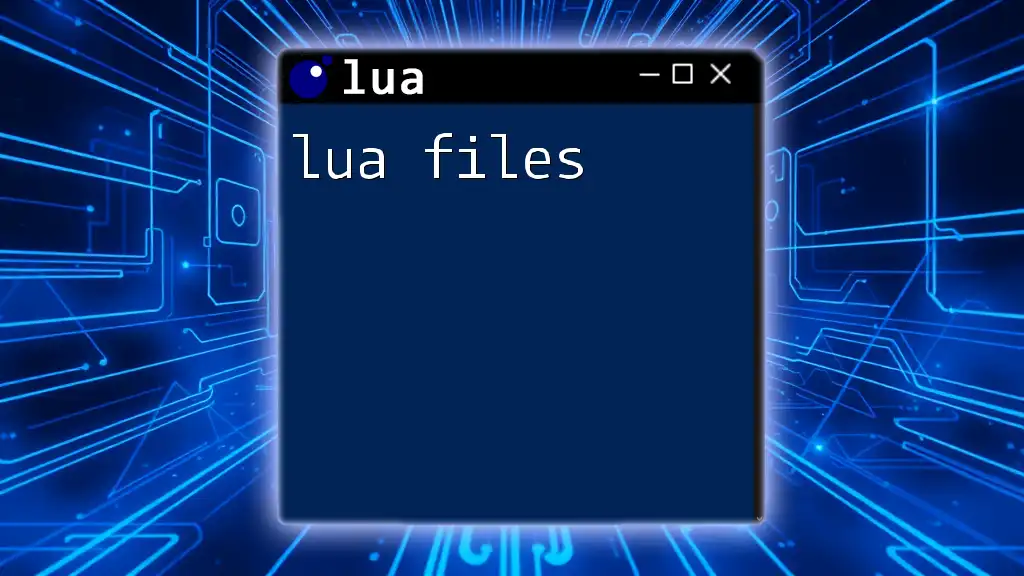
Creating and Executing Lua Files
Creating a Lua File
Creating a Lua file is simple and consists of just a few steps. You’ll need a text editor; options like Visual Studio Code, Notepad++, or even built-in editors in IDEs can be excellent choices. Just follow these steps:
- Open your preferred text editor.
- Write your Lua code using the correct syntax.
- Save the file with a `.lua` extension, for example, `myscript.lua`.
Executing Lua Files
Once your Lua file is created, executing it is straightforward. You can run Lua files in various environments, including local machines and online interpreters.
Command-Line Execution
To run a Lua file from the command line, navigate to the directory where your script is saved, and use the following command:
lua myscript.lua
This simple command will execute the script and output any results to the console.

Common Use Cases for Lua Files
Game Development
In game development, Lua files define behaviors, manage game states, and handle events. Much of the game's functionality is scripted using Lua, allowing for quick iterations and modifications without recompiling the entire game.
Configuration Files
Lua files serve as convenient configuration scripts that make it easier for applications to read settings. By using Lua for these scripts, developers can leverage the language's flexibility to write configurations that are clear and easy to modify.
Scripting for API Interactions
Lua can also be employed for handling API requests. Scripts can be written to communicate with web services, allowing Lua files to process responses and integrate external data into applications seamlessly.

Best Practices for Writing Lua Files
Code Organization
Maintaining organized code is essential, especially as scripts grow larger. Using functions to encapsulate logic, grouping related functionalities, and adhering to consistent naming conventions enhance code readability and maintainability.
Error Handling
Lua provides basic error handling using the `pcall` (protected call) function. This allows scripts to catch and handle errors gracefully without crashing the entire program. It’s crucial to incorporate error handling in your scripts to improve their robustness.
Performance Considerations
While Lua is optimized for performance, it’s still important to write efficient code. Avoiding unnecessary loops and using local variables effectively can significantly boost performance. Always consider optimizing bottlenecks in your scripts for better execution speed.

Conclusion
In conclusion, understanding what Lua files are and how they function is essential for anyone looking to harness the power of Lua scripting. Lua files are fundamental to diverse applications, especially in game development and configuration tasks. By learning to create and execute these files effectively, you unlock a valuable skill set that can enhance your programming capabilities.

Resources and Further Reading
If you're looking to deepen your understanding of Lua files, consider exploring online tutorials, documentation, and programming communities. Books dedicated to Lua can also provide comprehensive insights and advanced techniques.

FAQ Section
Common Questions about Lua Files
-
What is the difference between `.lua` files and other script files?
Lua files use specific syntax and are designed to run with the Lua interpreter, whereas other script files may belong to different languages with their own syntax rules. -
Can Lua files be compiled?
While Lua is primarily an interpreted language, Lua files can be compiled to bytecode for execution, which offers some performance benefits. -
How do I troubleshoot issues in Lua files?
Use the print statement liberally to debug and trace values in your code. Additionally, incorporating error handling will aid in catching unexpected issues during execution.

